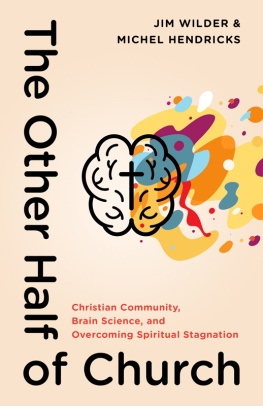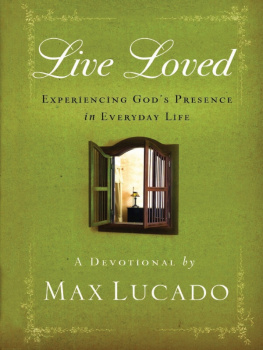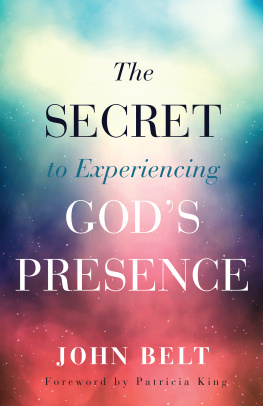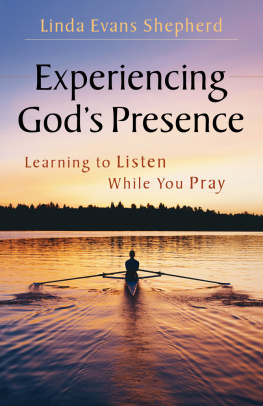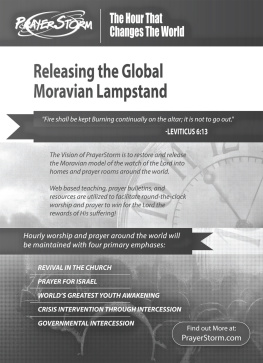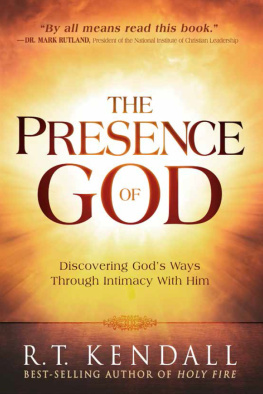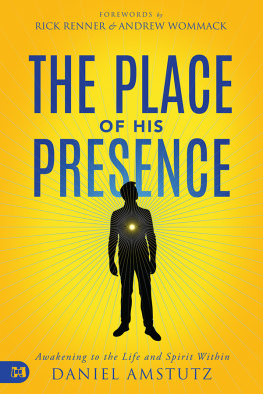Joyful Journey
Listening to Immanuel
Revised 2020
E. James Wilder
Anna Kang
John Loppnow
Sungshim Loppnow
Presence and Practice
810 Garland Ave.
Los Angeles, CA 90017
presenceandpractice.com
A Life Model Book
Joyful Journey: Listening to Immanuel
Revised 2020
By: E. James Wilder Ph.D.
Anna Kang
John Loppnow
Sungshim Loppnow
Copyright 2015, 2017, 2020
ISBN 9781711831459
Printed by:
Presence and Practice
810 Garland Ave.
Los Angeles, CA 90017
presenceandpractice.com
Scripture quotations from:
THE HOLY BIBLE, NEW INTERNATIONAL VERSION, NIV
Copyright 1973, 1978, 1984 2011 by International Bible Society. Used by permission. All rights reserved worldwide.
Chapter One
Changed Lives
Immanuel journaling is a simple method for improving our awareness of Gods presence in both our thoughts and lives. The method has three parts we will explain later:
- Interactive gratitude
- Writing our impressions thought rhyming with God
- Reading our journal aloud
There are many reasons to improve our awareness of Gods active presence in our lives. The best reason is the guidance and friendship we receive from checking in with God throughout the day. Other benefits include healing emotional wounds, enhancing character and building community. This booklet will help you learn the Immanuel journaling method for use in your life and fellowship community. The principles involved will be explained using biblical truths for relating to God and neuroscience for improving our awareness. A more mindful attachment with God leads to clearer knowledge of who we can become.
ME, my identity, is ultimately shaped by who I love and what pain I avoid. Love and the pain I avoid often compete within me to see whether my love or my fear of pain is stronger. As Christians we know God is love (1 John 4:8) and Perfect love casts out fear (1 John 4:18), but knowing this has little effect on our daily lives. Worrying whether someone will be angry with us often casts out our loving thoughts. What if we can show you how to interact with God in a way that is absolutely intimate and powerful and changes your life from the inside out? This process can be learned in a few minutes, and most people experience changes from the first time they practice it. Following a simple sequence naturally elicits transforming conversations with God.
Interacting with God is a simple idea yet it is something many of us dont know how to navigate. Most of us can neither see nor hear God, and we have some reservations about people who say they do! Even when Jesus came in the form of Immanuel (God with us), those closest to Him had difficulty seeing God in Him. Simon Peter, who went back to fishing, and the two disciples on the road to Emmaus failed to recognize Jesus after the resurrection (Luke 24). Jesus diagnosed them with sluggish vision (being slow-of-heart) as they were focused mainly on the pain in their lives.
We are like these disciples. We are slow-of-heart and have impaired vision of Jesus walking with us. Since we are all slow-of-heart, God has provided the Holy Spirit to empower us to experience Immanuel, the God who walks with us. Still, most of us can point to few, if any, conscious interactions we have had with God even though we somehow know that God is always present.
The Emmaus story highlights that God may be speaking to us and we do not know it. Let us examine three reasons why we might not be aware that God is speaking with us when thoughts go through our minds. First, our minds might not be in a relational state, one that is receptive to interaction with God or people. The relational state occurs because neural pathways in our brains have relational circuits (RCs) that may be open, alert or impaired. Like the disciples on the road to Emmaus, when we are in deep pain and our RCs are off, we also fail to recognize who is speaking to us. We will discuss this in more detail later and show you a simple way to reactivate your RCs and check whether they are working.
Second, we are told in Ephesians 2:10 to expect a similarity between God-thoughts and our thoughts. The structure in the brain called the cingulate cortex makes it possible for meaningful communication to occur between two different minds by establishing a mutual-mind state. When establishing a mutual-mind state, we learn to think and feel the way people we love think and feel. The interesting aspect of the mutual-mind state in the brain is that it works faster than the conscious mind so that we are never sure whether a mutual-mind thought is theirs or ours. We will show you how to develop a mutual-mind state with God later in this booklet. Now lets look at the passage from Ephesians in more depth before we consider the third reason we miss God speaking to our minds.
In Ephesians 2:10, Paul uses the Greek word poiema, which literally means Gods poetry. When poiema is translated as handiwork or workmanship it misses the following important point. Poetry in scripture does not rhyme sounds; it follows the Hebrew pattern and rhymes thoughts. This means that as Gods poetry, our thoughts can rhyme with our Heavenly Fathers. That is amazing! How can it work? We know that as we become intimate with someone, we begin to finish each others sentences and thoughts. In a deep, authentic, mutual-mind state, we actually dont know where our thoughts stop and the other persons thoughts begin. This is exactly what can happen between God and us too. A mutual-mind state with God results in an emulation of His character and heart; we are showing the world the poet behind the poetry. As our mutual-mind state becomes stronger, we are able to live out our purpose of being created for good works. It is important to note here that our good works do not save us. Good works flow from thinking like our Creator; we rhyme Gods actions and not just His thoughts.
The third reason we miss God speaking to us is that we dont stop to check the characteristics of our thoughts to see if they are poetry that rhymes Gods thoughts. We will explore how to check our thoughts more completely later, but now let us examine the main test. Thoughts that rhyme with Gods produce shalom. Shalom is a state of harmony where everything works together, makes sense and is good. Shalom is the peace of Christ. Furthermore, Colossians 3:15 tells us that we should let shalom act like a referee in our lives who stops the action every time shalom is missing. The Greek word brabeuo in this verse means to literally sit as an umpire, which suggests that this peace should be refereeing every aspect of our lives. The rule for our lives and relationships is that everything should be in shalom when we are synchronized with how God thinks. We will be in harmony with God and with everyone else who is making mind-poetry with God.
We lack the peace of Christ, shalom that referees our lives, because we have not learned to rhyme our thoughts with Gods thoughts. Colossians 3:1-17 is a clear picture of what our lives should reflect when we are living and growing in a mutual-mind state with God. As we have been raised with Jesus and set our minds on the things above, our thoughts will naturally rhyme with Gods through our growing intimacy with Him. As we put off our old nature through this intimacy, we clothe ourselves with who God is. In verses 12-14, we are told to put on compassion, kindness, humility, gentleness and patience. Moreover, we are to bear with one another, forgiving one another and ultimately clothing ourselves in love. This is the fruit of our mutual-mind state. With Immanuels love guiding our lives, the peace of God rules in our hearts. We will show you a simple way to live in shalom.


